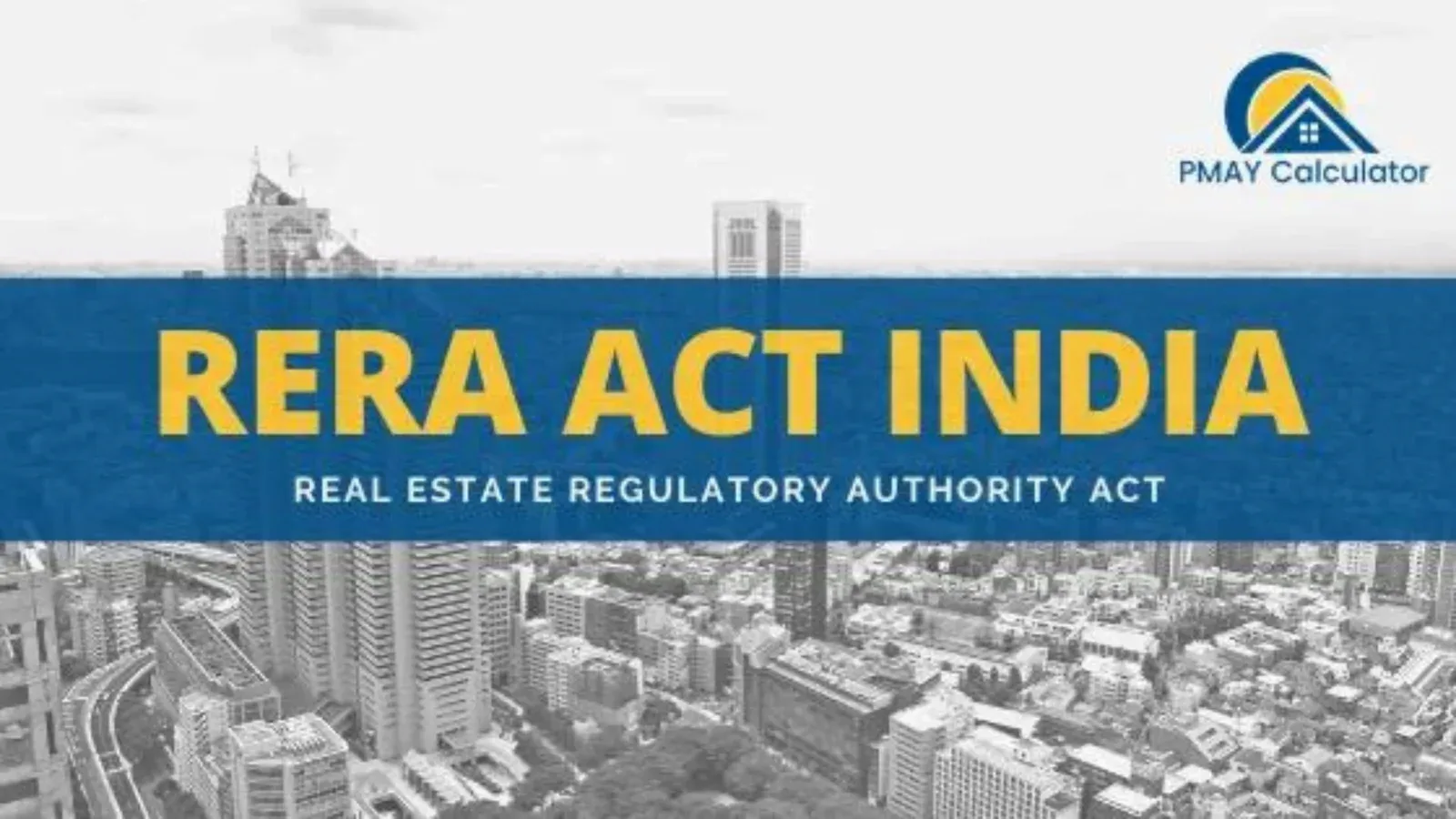
You must have heard about the RERA if you were looking to buy a new home.
If you want to know more about the RERA Act, then this post will provide more input. Read on!
What is the RERA Act?
RERA stands for Real Estate Regulation and Development Act. The Indian Parliament passed this act in 2016. The principal motive of this act is to safeguard home buyers, along with boosting real estate industry investments.
RERA is available in every state of India. It has been implemented to regulate the real estate sector. It has also emerged as a body for the reporting and solution of property-based issues about builders and buyers.
Why was RERA implemented?
For a long, the Indian real estate sector was suffering from discrepancies between builders and home buyers. Homebuyers were finding it tough to get the delivery of their homes on time. But even builders were taken to court to sort out issues.
Hence, to address all these issues, RERA was implemented. It provided a sense of security and uniformity to Homebuyers and transparency to real estate developers.
RERA is available all over India in all states and union territories. A builder needs to inform their Homebuyers about contraction progress. And they also need to tell them the exact date of possession.
With RERA in place, home buyers are now confident that they can move into their new home on a specified date.
What benefits does RERA offer to the real estate sector?
Curtails Project Delays
The primary benefit that RERA offers is keeping away real estate project delays. Yes, when a builder starts a project, it just can’t continue for ages. It has to be completed within a specified time. Thus, when any real estate project starts, it is now mandatory for all builders to register it under RERA for tracking.
RERA Comes With Small Regulatory Authorities
The powers of RERA are not contained in a single body. It has been divided into many bodies to overlook many aspects of real estate. Each of them is accounted to look after real estate development in India’s every state and union territory.
RERA Applies To All Types Of Properties
Be it a residential or a commercial property, everything comes under the umbrella of RERA. The regulations that RERA provides are intended for the protection of the interests of developers and buyers in India.
Offers An Increased Level Of Transparency And Accountability
Owing to the rules and regulations of the RERA Act in India, many things have changed for good. Yes, the real estate industry has been able to bring about more simplicity and responsibility in its tasks among realtors.
Right To Information
Under the RERA Act, every home buyer has the right to know the updates about the ongoing projects of the builder that he/she has invested in. The information includes layout plans, completion and the status of completion. And the real estate developer can’t deny them this vital information.
What benefits does RERA offer to home buyers?
Standardized Carpet Area Of The Home
Earlier, every builder has its own method of calculating the carpet area. But it was the base of every one of them to determine the price of a property. Hence, two builders calculating the same home may measure it 1200 sq ft and 1400 sq ft.
With the RERA Act now live, it will save Homebuyers from all confusion. RERA signifies the cost of the property as carpet area X rate per square meter. RERA also defines a carpet area as the usable area of an apartment. It excludes areas that are covered by a balcony, verandah, external walls, and an open terrace. Thus, now builders are not able to manipulate the price of a home, and you get more out of your investment.
Buyers Do Have Right In Case Of Bogus Assurance
Is there any mismatch in the commitments made by the real estate builder and the projects that are being delivered to you? If yes, then you can withdraw from it. Yes, you can get a full refund on the entire amount/advance as paid. The interest, along with the claim for compensation, can be made by a home buyer.
No Advance Payment Of More Than 10% To Be Made
RERA also provides clarity when it comes to the advances made for the purchasing of an apartment. If you are a home buyer, then you don’t need to make more than 10% of the advance. Before you get the sale agreement, you can just pay up to 10% and nothing more.
Grievance Redressal Made Easy
In case if you have any complaints against the builder, then you can approach your state RERA authority. It is provided with the power to deal with it swiftly. For example, if you have an issue with your new flat in Pune, then you will need to address your grievance to MahaRERA.
How will RERA affect Homebuyers and real estate developers?
RERA has been implemented in almost all states and union territories of India. And it is sure to impact Homebuyers and builders. Hence, it will be useful to check out how it is going to affect both. Take a look:
RERA effects on Home buyers
- With RERA in place, now every builder will need to abide by the rules and provide details of the projects that they are going to start. The best part is that any addition, in this regard, needs to be updated on a regular basis. As a result, Homebuyers can be sure of everything and know when the project will complete.
- Under RERA, builders don’t have any authority to charge for the super built-up area. They are lobbies, balconies, lifts and stairs. They can only charge you for the carpet area/area enclosed by walls.
- About 70% of the money towards the charge for building an apartment/home by builders will now need to be kept in a separate account. It means that such an amount needs to be used only towards the ongoing projects and not others. When that happens, you can easily expect the delivery of the home that you want to buy on time and without delays, unlike times before the start of the RERA.
- RERA relies on the timely finish of all ongoing projects. What If there is a delay on the part of the builder? Then the builder will need to pay 2% interest over MCLR of SBI on the delay period.
- Once the apartment is given possession, it is up to you to report any construction and other defects under a period of 5 years. In this case, the real estate developer will need to work on all and get it resolved.
- If a home buyer lodges a complaint against the builder, then the developers will need to resolve it within 2 months.
- Without informing 2-3rd of the Homeowners, a builder is not authorized to make alterations in the settings of the buildings. Once a large number of home occupants have no issues, then only any such changes can take place.
- RERA does not allow real estate developers to take more than 10% as advance from prospective home buyers.
- In case if you come to know that there is an issue in the title deed, you can simply ask for immediate compensation from builders.
RERA effects on real estate developers
- If a real estate developer is planning to have projects with an area more than 500 square meters, then it needs to be brought under RERA. It is also true if there is a plan to include 8 or flats by the builder.
- As discussed earlier, a deposit of 70% (taken from home buyers) needs to be deposited in bank accounts. It means that real estate developers are not entitled to indulge in any fraudulent transactions. It means that all money spent/paid towards the construction of new homes/apartments will be accounted for.
- All builders and Homebuyers are engaged under one model sale agreement.
You are now aware of the basics of the RERA Act and how it safeguards the rights of Homeowners and builders.
If you are looking to buy a first pucca home, then you can apply for a home loan under the Pradhan Mantri Awas Yojana.
Anyone earning between Rs.6 lakh and Rs.18 lakh with a valid Aadhaar number can avail an interest subsidy of up to 6.5% on a loan of up to Rs.12 lakh. This way, you can end up saving up to Rs.2.67 lakh and pay reduced EMIs.
You can also use the PMAY Subsidy Calculator to know your exact interest subsidy on the availed home loan. What’s more, it can also provide you with readjusted EMIs after deductions.



